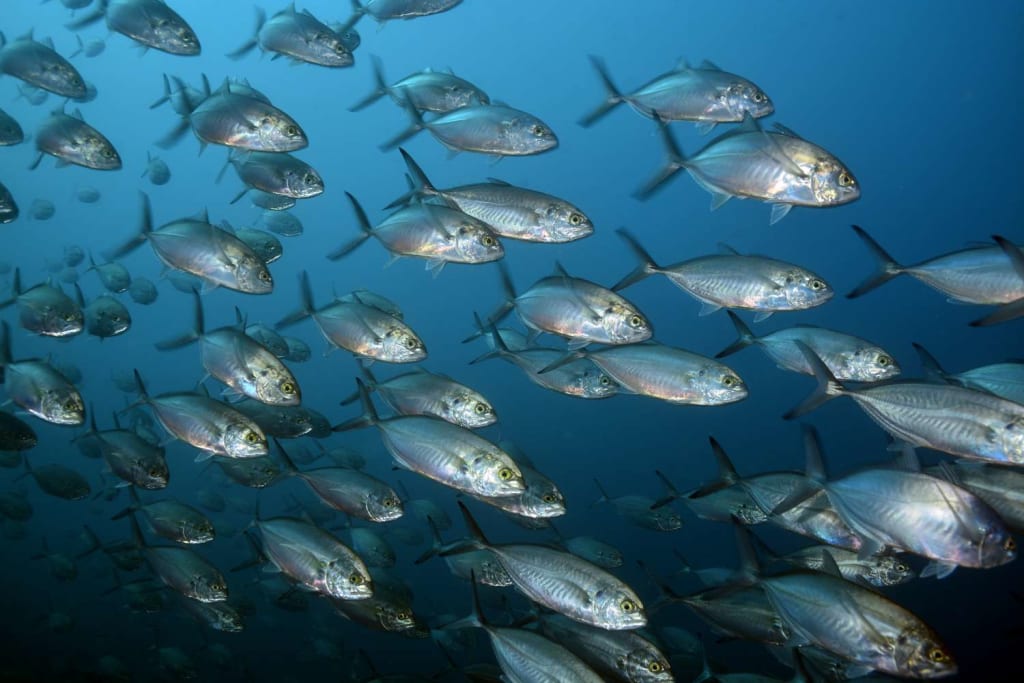
Fish are one of the most diverse and important groups of animals on the planet. They are found in nearly every aquatic environment, from the deepest oceans to the smallest streams, and play critical roles in ecosystems around the world. From their physical adaptations to their behavior and ecological importance, fish are fascinating creatures with much to offer in terms of study and appreciation.
Physical Characteristics
Fish come in a wide variety of shapes, sizes, and colors, but all share certain physical characteristics that set them apart from other animals. For starters, they are vertebrates, which means they have a backbone and a series of paired fins. Fins are an essential adaptation for fish, as they allow for movement and maneuverability in the water. Fish also have gills, which are specialized organs that extract oxygen from the water, allowing them to breathe underwater.
Fish come in all shapes and sizes, from the tiny goby that measures less than an inch to the massive whale shark, which can reach lengths of up to 40 feet. Their physical characteristics are often specialized to the environment in which they live. For example, fish that live in deep, dark waters often have bioluminescent adaptations that allow them to communicate with each other and locate prey in low light conditions.
Behavior
Fish exhibit a wide range of behaviors, from solitary hunters to schooling species that move together in large groups. Many fish are territorial, defending their space against other fish or predators, while others are more social, forming bonds and even engaging in cooperation with other members of their species.
One of the most fascinating behaviors of fish is migration. Many fish species undertake long and often perilous journeys each year to breed and feed. For example, salmon travel from the ocean to their natal streams to spawn, while humpback whales travel thousands of miles each year to breed and feed in different parts of the world's oceans. Migration is an essential aspect of fish behavior, and it plays a critical role in maintaining healthy ecosystems.
Ecological Importance
Fish play critical roles in ecosystems around the world, serving as both predators and prey. They help maintain healthy populations of other aquatic animals by keeping populations in check and acting as a food source for larger predators. They also play a critical role in nutrient cycling, helping to recycle and redistribute nutrients within aquatic ecosystems.
Commercial and Recreational Fishing
Fish are an important food source for people around the world. Commercial fishing is a multi-billion dollar industry, providing jobs and food for millions of people. However, overfishing and other unsustainable practices have led to declines in fish populations and significant environmental damage.
Recreational fishing is also popular, with millions of people enjoying fishing as a hobby and a way to connect with nature. However, like commercial fishing, recreational fishing can also have negative impacts on fish populations if not done responsibly. Sustainable fishing practices, such as catch-and-release and using barbless hooks, can help reduce the impact of recreational fishing on fish populations.
Conservation
Conservation efforts are critical for protecting fish populations and the ecosystems they inhabit. Many fish populations are threatened by overfishing, habitat destruction, and pollution. Conservation efforts can include habitat restoration, fishing quotas and restrictions, and other measures aimed at protecting fish populations and their habitats.
Aquaculture
Aquaculture, or fish farming, is an increasingly popular method of producing fish for food. Aquaculture can be done in a variety of environments, including ponds, tanks, and ocean cages. While aquaculture has the potential to provide a sustainable source of fish for food, it can also have negative environmental impacts if not done responsibly. Issues such as disease, pollution, and habitat destruction can arise if aquaculture operations are not properly managed.
In Conclusion
Fish are fascinating creatures with a wide range of physical adaptations, behaviors, and ecological importance.
About the Creator
Thameem Ansari
good....
Enjoyed the story? Support the Creator.
Subscribe for free to receive all their stories in your feed. You could also pledge your support or give them a one-off tip, letting them know you appreciate their work.





Comments
There are no comments for this story
Be the first to respond and start the conversation.